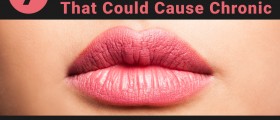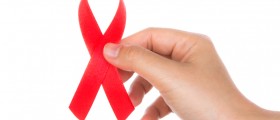
Angular stomatitis is a medical term used to describe small lesions that appear on the corners of the mouth. These lesions are unsightly and often hurt, especially when opening the mouth or when eating spicy, salty or sour foods, because the skin is cracked and is susceptible to irritation. Even if left untreated, the cracks usually go away on their own within 7 to 15 days.
Medical professionals and experts do not seem to agree as to what exactly is the cause of angular stomatitis. As for the laymen, there are several myths surrounding this condition.
Popular myths about angular stomatitis
One of the most common myths about angular stomatitis is the claim that it is contagious. This can cause quite a few social problems, because the person suffering from it volountarily distances him or herself so that the infection does not spread to others, and the others often shun the person with angular stomatitis, fearing they might pick it up. According to most experts, these lesions are not contagious, and even if they were, the chance of transmitting it would be fairly low.
Another popular myth is that angular stomatitis comes from the same family of diseases as cold sores and herpes, which are caused by viruses. Since viruses are often transmitted through sexual contact, especially herpes, there is no wonder why people avoid those who have angular stomatitis.
Who can get angular stomatitis?
Angular stomatitis can affect anyone, but some people are more prone to it than the others. This includes the elderly, people who suffer from certain skin conditions, such as atopic or seborrheic dermatitis, or who use isotrentinoin for acne, people whose immune system is weakened or who have vitamin and mineral deficiencies.
Angular stomatitis is particularly associated with the deficiency of B complex vitamins, especially B2, B3, B6 and B12, and with iron deficiency as well.
Treatment and remedies for angular stomatitis
Angular stomatitis is usually treated with topical ointments like 1 % Hydrocortisone, Myconazole or Mycolog-ll.
As for the home remedies and treatments, the best way to kill whatever is causing angular dermatitis is to dry it out. Zinc paste can help a lot with this. It also helps to apply a paste made of baking soda and water, to cleanse the lesion with sage tea, to rinse with saline solution and to try to improve the nutrition and to include as much vitamins and minerals as possible.












_f_280x120.jpg)




Your thoughts on this
Loading...